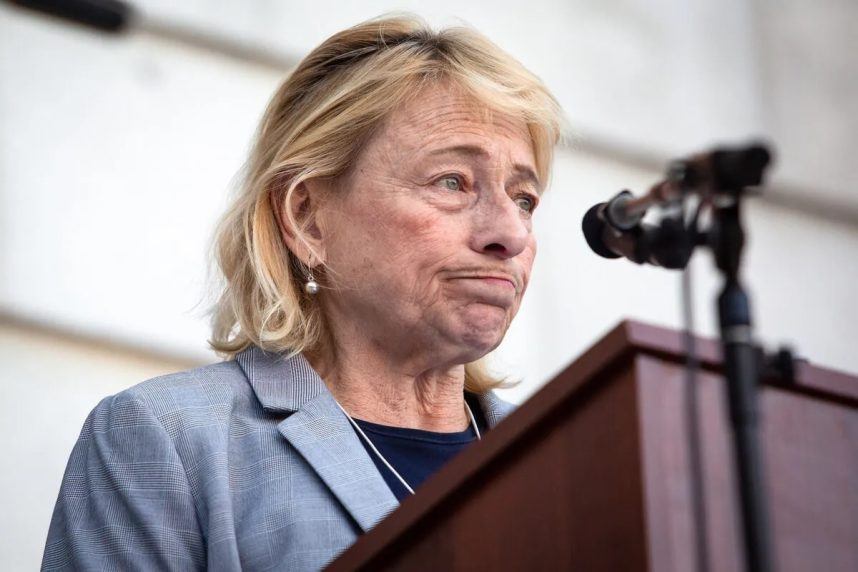Maine Gov. Janet Mills Vetoes Bill to Give Wabanaki Tribes Federal Rights
Posted on: July 4, 2023, 06:50h.
Last updated on: July 5, 2023, 12:47h.
Maine’s Democratic Gov. Janet Mills has vetoed legislation that would have afforded the state’s tribes greater access to federal beneficial laws. Mills’ rejection of the bill (ID 2004) Friday occurred despite overwhelming bipartisan support in the House and Senate.

The four Wabanaki tribes have long demanded the same rights as other tribes in the country. The governor’s decision to veto a bill whose approval was described by Penobscot Nation Chief Kirk Francis as “a landmark victory in the pursuit of Wabanaki self-determination” has mystified observers and angered the tribes.
It is the second time Mills has vetoed a bill that would have expanded sovereignty for the tribes, whose sovereign rights are restricted compared to Native American groups in other states.
‘Conflict and Litigation’
In a six-page veto letter, Mills said the bill “contained a complicated series of provisions that, in my view, pose a very serious risk of conflict and litigation rather than collaboration and communication.”
ID 2004 would have placed Maine’s tribes on the same footing as the other 570 federally recognized tribes in the US, giving them access to federal benefits they have been denied by a 1980 land claims settlement.
Or almost on equal footing.
The bill would not allow the tribes to organize Class II gaming on their reservations under the federal Indian Gaming Regulatory Act (IGRA). That was a concession added by the bill’s authors to win the support of Maine Republicans.
Sports Betting Redress
Under the Maine Indian Claims Settlement Act (MICSA), the tribes were afforded a narrower version of sovereign rights enjoyed by many other Native American tribes, including the right to organize gaming. Currently, their reservations are treated like municipalities, which means they remain subject to state laws.
MICSA also stipulated that federal laws enacted after 1980 would not apply to the Wabanaki tribes unless the law mentioned Maine specifically. 1988’s IGRA, which codified Native American gaming rights on tribal lands, didn’t.
Mills attempted to partially redress this imbalance when she led negotiations with the tribes on the legalization of sports betting and agreed to give them exclusivity over mobile wagering. Maine legalized sports betting in the spring of 2022, but it has yet to launch in the state.
Override Possible
ID 2004 passed the state legislature with a supermajority, garnering the two-thirds of the vote needed to override the governor’s veto.
But there’s no guarantee that will happen. Lawmakers who were previously persuaded to support the bill may now waver when asked to vote against the governor, and there’s not much room for maneuvering.
“…[a] bipartisan, supermajority of the Legislature passed this bill and [that’s] exactly why I will work tirelessly to harness that same group of legislators and override this veto,” House speaker Talbot Ross (D-Portland) said in a statement.
Related News Articles
Most Popular
FTC: Casino Resort Fees Must Be Included in Upfront Hotel Rates
Genovese Capo Sentenced for Illegal Gambling on Long Island
NBA Referees Expose Sports Betting Abuse Following Steve Kerr Meltdown
UPDATE: Former Resorts World & MGM Grand Prez Loses Gaming License
Most Commented
-
UPDATE: Whiskey Pete’s Casino Near Las Vegas Closes
— December 20, 2024 — 32 Comments -
Caesars Virginia in Danville Now Accepting Hotel Room Reservations
— November 27, 2024 — 9 Comments -
UPDATE: Former Resorts World & MGM Grand Prez Loses Gaming License
— December 19, 2024 — 8 Comments -
FTC: Casino Resort Fees Must Be Included in Upfront Hotel Rates
— December 17, 2024 — 7 Comments
















No comments yet